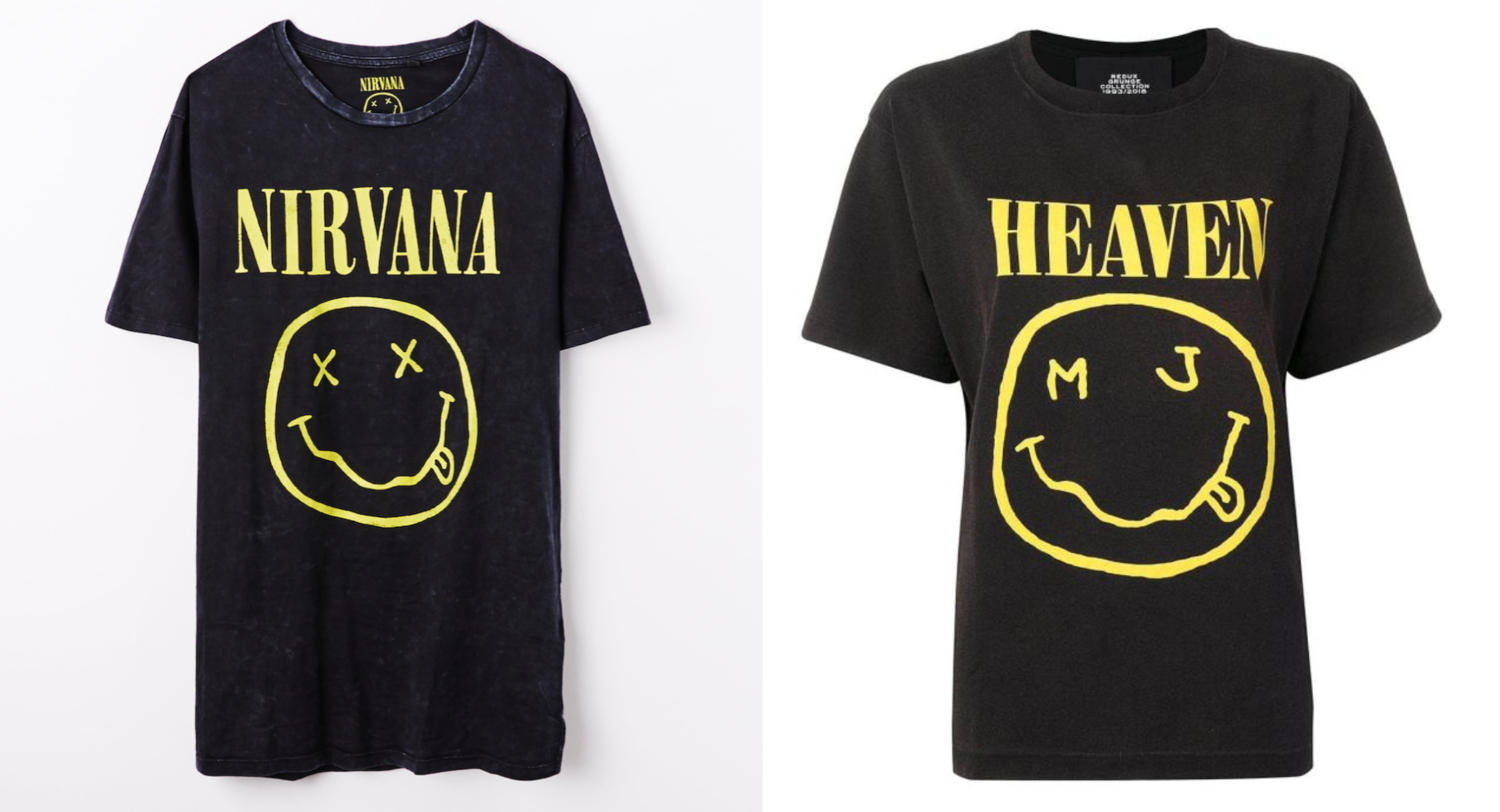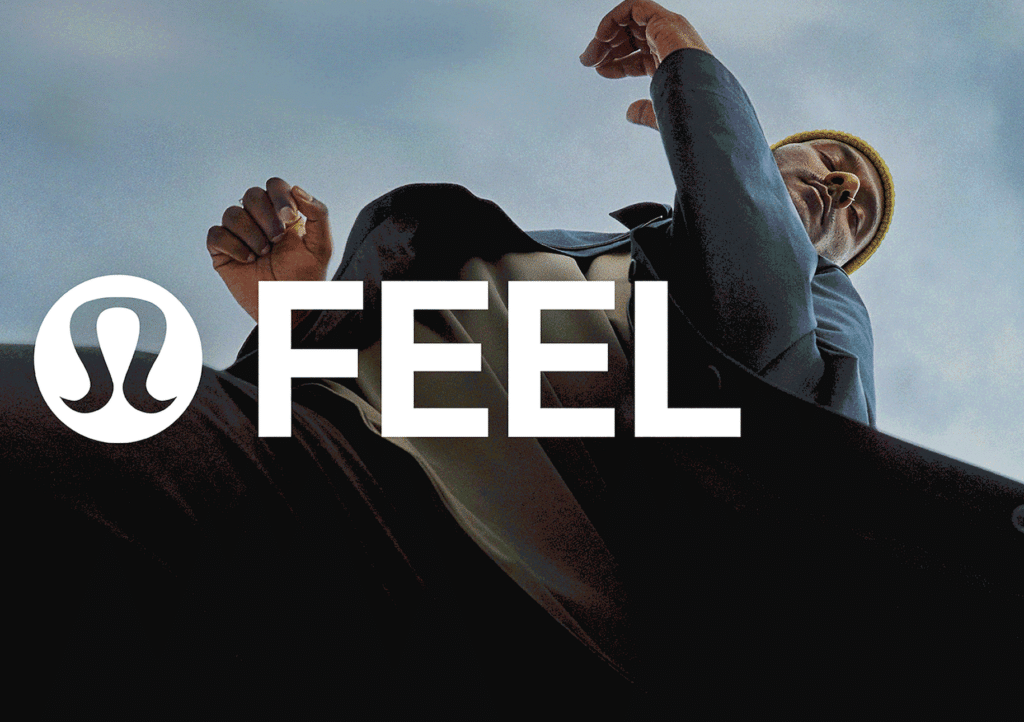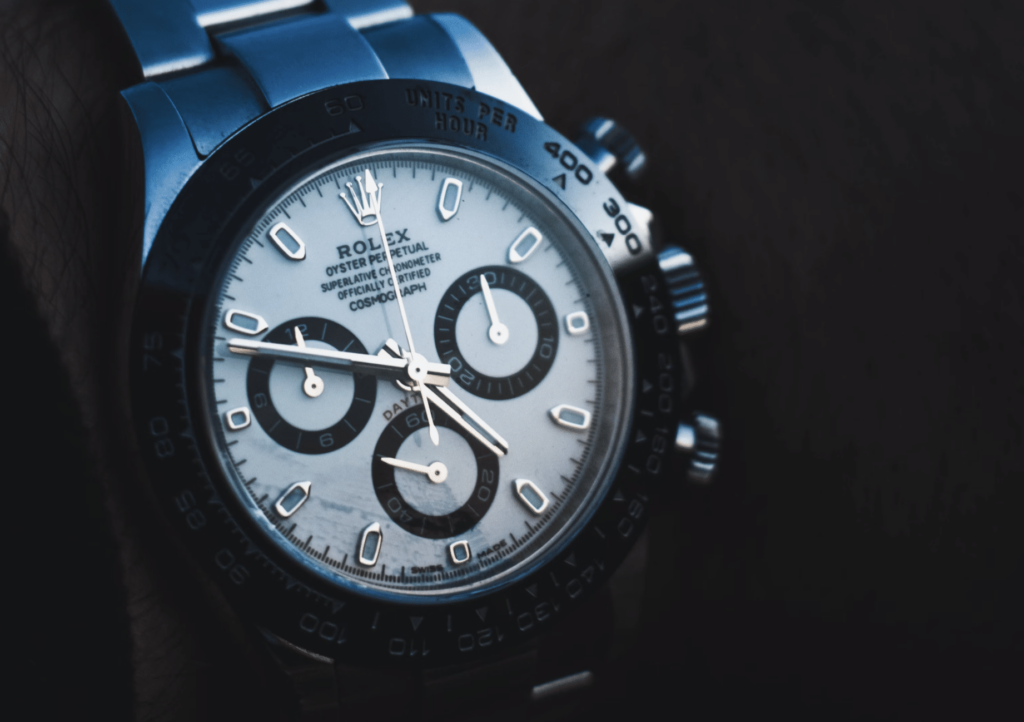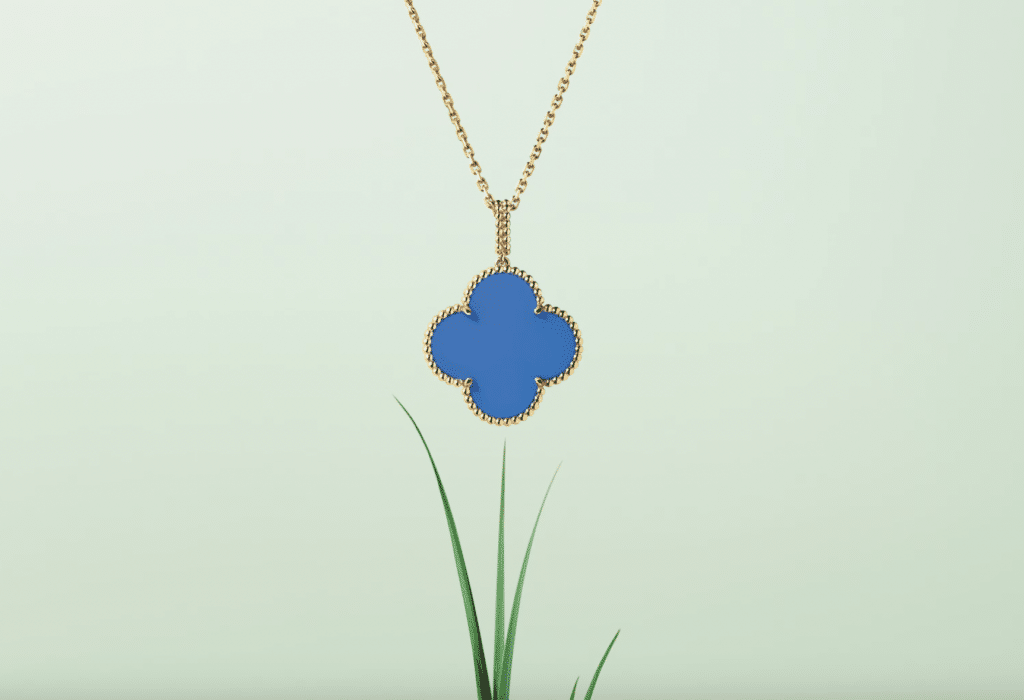Marc Jacobs is not going down without a fight. In a new 31-page filing in response to the copyright and trademark infringement lawsuit that Nirvana LLC (“Nirvana”) initiated in December accusing the New York-based fashion brand of copying a smiley face that looks a lot like one that has long been associated with the now-defunct band, Marc Jacobs asserts that Nirvana’s lawsuit is rife with “egregious” problems and has asked the Central District of California court to toss out the entire case as a result.
One of the major issues at play here, according to LVMH Moët Hennessy Louis Vuitton-owned Marc Jacobs’ rather strongly-worded motion to dismiss is that Nirvana has based its entire suit on the “false premise that [it] owns a U.S. copyright registration [for] a smiley face design.” While Nirvana does, in fact, have a copyright registration that covers a design that includes the smiley face at issue (and has since 1993), the smiley face is “merely a fraction of the full artwork covered by the registration … which includes the text and graphics on the full front and back of a t-shirt.”
Nirvana’s registration covers three elements: the smiley face design and the word ‘NIRVANA’ written above the smiley face on the front of a t-shirt, and the words “flower sniffin kitty pettin baby kissin corporate rock whore,” which appear on the back, with a horizontal line above them.
As such, counsel for Marc Jacobs – “one of the world’s best-known and most celebrated fashion designers,” who has made use of smiley face designs since his debut in 1984 – states that Nirvana “does not own a copyright registration for just the X-Eye Smiley Face, despite referring to that image as copyrighted several times in the complaint.”
Even if Nirvana does have a valid registration despite the foregoing issue, Marc Jacobs points to two other potential issues. 1) Nirvana has failed to state how or whether it obtained rights to the smiley face artwork from the late Nirvana frontman Kurt Cobain, as well as the unknown creator of the other design elements. 2) An “objective comparison of [the] specific expressive elements” between the Nirvana tee and Marc Jacobs design – which Jacobs admits was “inspired by vintage Nirvana concert t-shirts from the 1990s” but was “reinterpreted” by Mr. Marc Jacobs “to incorporate [Marc Jacobs] branding into an otherwise commonplace [smiley face] image” – does not give rise to the level of similarity required for a successful copyright infringement claim.
Nirvana’s “complaint gets more egregious from there,” Marc Jacobs asserts, as it “alleges three other claims” – state law claims of false designation of origin, common law trademark infringement, and unfair competition – which “are not only factually unsupported, but preempted’ by its federal copyright law claim.
In terms of Nirvana’s trademark infringement claim, Marc Jacobs’ counsel argues that while Nirvana claims to have state law trademark rights in the t-shirt design that bears the smiley face, that is impossible. Their reasoning? Nirvana filed a trademark application with the U.S. Patent and Trademark Office (“USPTO”) for the X-Eye Smiley Face on January 28, 2019, about a month after filing suit against Jacobs. In that application, Nirvana stated that it has “an ‘intent’ to use the X-Eye Smiley Face as a trademark on clothing, but had not yet done so.” In other words, Nirvana “has sworn to the USPTO that it has not yet used the X-Eye Smiley Face as a trademark, at least in connection with clothing.”
That seemingly minor detail – whether Nirvana has been using the smiley face on clothing – is not actually so minor. In fact, it could be a deal-breaker, as the only way to gain trademark rights and claim trademark infringement in the U.S. is by actually using the trademark at issue on the specific goods/services for which rights are being claimed. Here, Jacobs’ counsel is alleging that Nirvana has not done that.
 A Nirvana “Smiley Face” tee (left) & a tee from Marc Jacobs’ Grunge collection (right)
A Nirvana “Smiley Face” tee (left) & a tee from Marc Jacobs’ Grunge collection (right)
Jacobs’ counsel goes on to assert, “It would be impossible for an unused mark to have garnered common law rights, and impossible for an unused mark to be in use prior to the alleged already-occurring infringement.” Such “failure to plead prior trademark use is grounds for dismissal.”
(Note: Since Nirvana, or maybe better yet, its merch licensing company, has, in fact, sold shirts bearing the smiley face design (as pictured above), the crux of Marc Jacobs’ argument here must be that Nirvana has not been using the smiley face in a trademark capacity – i.e., as an identifier of the source of the products, and instead, has been using it in a purely decorative capacity, which would not give rise to trademark rights).
Still yet, in addition to shooting down Nirvana’s false designation of origin and unfair competition claims, Marc Jacobs’ counsel is sure to point out that Courtney Love, who co-owns Nirvana LLC, has known about Jacobs’ use of the lookalike smiley face design since 1992.
According to Jacobs’ motion, in 1992, Mr. Jacobs “showed a grunge-inspired collection for Perry Ellis that included a t-shirt emblazed with a smiley face,” which was “summarily dismissed by Ms. Love and [late husband Kurt] Cobain.” In fact, the inclusion of the smiley face in Jacobs’ first grunge collection was such a non-issue that when “Marc Jacobs [first] met Courtney Love and Frances Bean Cobain, the daughter of Ms. Love and the then-late Mr. Cobain, in 1994, [he began] a personal and professional relationship with both women that endures to this day.”
Particularly interesting, according to Jacobs, is that on the heels of the release of its recent Grunge Redux collection, both Ms. Love and Ms. Cobain – who have appeared in Marc Jacobs ad campaigns and have regularly attended the brand’s runway shows – “‘liked’ and commented on the images of the collection that Mr. Jacobs posted on his Instagram feed, including, notably, images of Mr. Jacobs in the t-shirt that is one of the [allegedly infringing] products.”
“Ms. Love commented on one of the images of Mr. Jacobs in [the allegedly infringing] shirt, saying, ‘Nice photo! Looks somewhat familiar! Amazing!’”
With the foregoing in mind, Marc Jacobs’ counsel has asked the court to dismiss Nirvana’s complaint in its entirety. Stay tuned.
*The case is Nirvana LLC v. Marc Jacobs International, LLC, et al., 2:18-cv-10743 (C.D.Cal).











